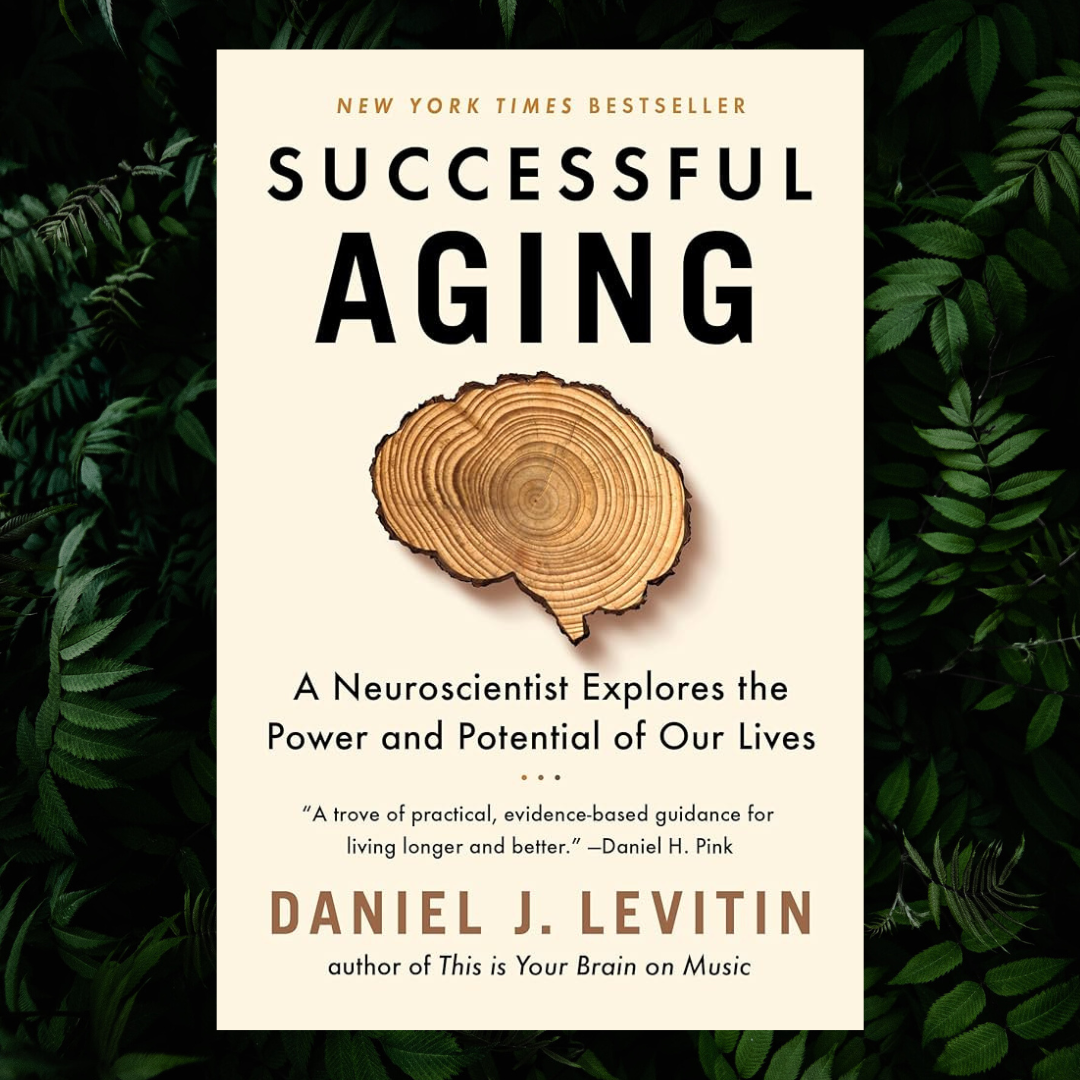Book - Successful Aging by David Levitin
Although written by a neuroscientist, Successful Aging by Daniel Levitin provides an approachable and engaging overview of what current science tells us we can do to age well. He even offers a list of his 10 best strategies for rejuvenating your brain.
I didn’t expect to enjoy this book as much as I did. It came as a second-hand recommendation through a family member who’d had it endorsed by a neuropsychologist. I thought that if it’s being recommended to people by a neuropsychologist, I should see what it’s about. I’ve now recommended it to a handful of clients and, what’s more, have adopted many of its recommendations into my life.
Successful Aging is presented in three parts. Part one tells the story of the continually developing brain. Levitin presents what we currently know about personality, memory, perception, IQ, emotions, and the nervous system to demonstrate two things: we are always changing and that healthy aging is about directing these changes where we can. Part two looks at some of the big areas where our behaviors make a difference: understanding our daily rhythms and how this intersects with behaviors involving sleep, diet, and exercise. Part three wraps up with a realistic examination of what it takes to live longer, smarter (maintaining your cognitive fitness), and better. All of this leads to his list of 10 things to do to rejuvenate your brain as you age.
This book changed my thinking in at least two areas. First, it challenged the notion that our happiest days are behind us once we hit 30 or 40 or 50 (insert whatever the number is that you just passed or are nostalgic for). Levitin even presents data from a survey of older adults in which age 87 was cited as the happiest age. Similarly, he pushes against the idea that you just are what you are and you have to be happy with that. Instead, he offers many examples of areas where small changes can have significant downstream effects. I’ve found myself returning to his chapter on diet for guidance on where I should be investing my efforts to improve my health. He makes a case for shifting our assumption that our best days are behind us to the notion that most people can live and live well into their 90s. Second, this book made me realize a mistaken idea I’d had that as we age our cognitive abilities uniformly decline. He argues that while this is the case in some areas (like processing speed) it isn’t the case in other areas where we actually improve.
On a practical level, Successful Aging provides the science-based argument for the importance of sleep, diet, and exercise. Instead of pitching an unreachable ideal, he provides well-supported explanations that lead to reasonable and manageable recommendations such as eating food in healthy portions and more plants, going for more walks, prioritizing sleep.
As a whole this is an optimistic-leaning book that draws on today’s scientific knowledge about aging to provide recommendations for how to do it better.
Quote:
“Rejuvenating your brain
Don’t retire. Don’t stop being engaged with meaningful work.
Look forward. Don’t look back. (Reminiscing doesn’t promote health.)
Exercise. Get your heart rate going. Preferably in nature.
Embrace a moderate lifestyle with health practices.
Keep your social circle exciting and new.
Spend time with people younger than you.
See your doctor regularly, but not obsessively.
Don’t think of yourself as old (other than taking prudent precautions).
Appreciate your cognitive strengths - pattern recognition, crystallized intelligence, wisdom, and accumulated knowledge.
Do new things. Promote cognitive health through experiential learning: traveling, spending time with grandchildren, and immersing yourself in new activities and situations.”

